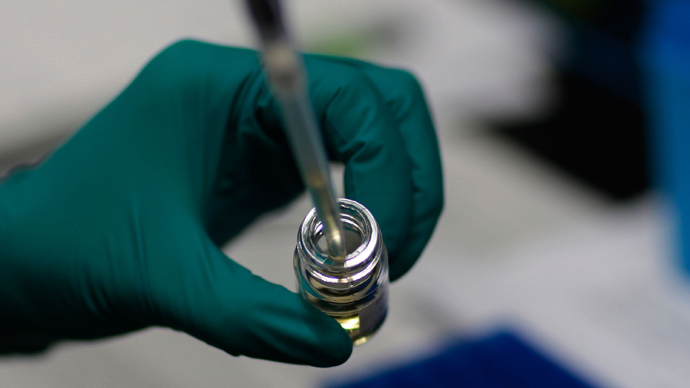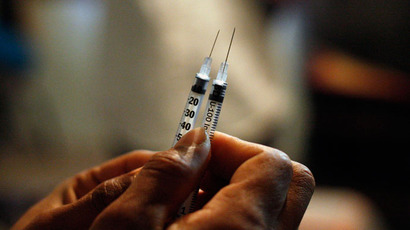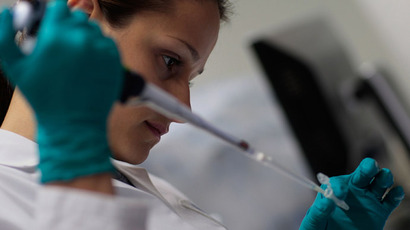Successful HIV treatment may be on the way – German researchers

Biomedicine researchers at Dresden's Technical University have made several successful attempts to treat HIV virus with a new method which uses so-called ‘‘molecular scissors’’ to cut the virus from the DNA of infected cells.
The researchers have managed to manipulate the enzyme so that it can identify a particular sequence and remove it - and they say it is more than 90 percent effective in identifying the HIV virus this way, TheLocal.de reported.
"There are various methods and similar approaches, but removing the virus from infected cells is unique," said Professor Joachim Hauber, head of the antiviral strategy section at Dresden Technical University’s partner research lab at Hamburg's Heinrich Pette Institute, told the German daily.
Molecular scissors that carry out the cutting could be ready to use in 10 years as a somatic genetic therapy (when a patient’s cells are altered and put back into the body).
The theory is that the genetically altered immune cells would reproduce, cut the HIV out of infected cells, and as a result, enable them to function again.
The Dresden researchers have put the theory into practice, as the method works – at least on mice.
"The amount of virus was clearly reduced, and was even no
longer to be found in the blood," Hauber said.
An enzyme created especially via mutation and selection
identifies HIV.
"It is one of the most exciting things of all," he said. "There is a vague hope of cure, but that must first be proven."
It can be established if the newly-discovered method would function with people only in clinical trials, the money for which haven’t been found.
Another issue related to the HIV drug is that pharmaceutical companies have shown little interest in it.














